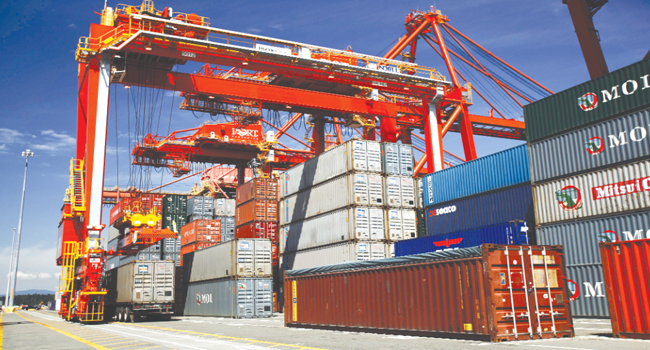According to an article in The Express Tribune, Pakistan’s central bank has recently issued new regulations aimed at tightening the process of repatriating export earnings back to the country.
Under the new rules, exporters who delay bringing their export earnings into Pakistan will face fines of up to 9% of their realized export proceeds. The fines will be imposed if export proceeds are realized fully or partially after the prescribed period of up to 180 days, or earlier in some cases.
Exporters often delay receipt of payments from their global buyers in anticipation of a better rupee-dollar exchange rate, creating an artificial shortage of US dollars in the domestic economy and triggering depreciation in the local currency. Such delays also reduce the supply of US dollars in the economy, causing unnecessary rupee depreciation against the greenback. Pakistan, which is already managing with critically low foreign exchange reserves and a high risk of default on foreign debt repayments, cannot afford such delays.
According to a notification released by the State Bank of Pakistan (SBP) on Friday, in cases where export proceeds are realized (fully or partially) after the prescribed period (a maximum of 180 days in the majority of cases, or earlier in some cases), authorized dealers (mostly commercial banks) will convert the export proceeds at the prevailing market exchange rate and credit the same into the exporters’ account. They will also mark a 3% lien on the amount of export proceeds delayed by up to 30 days, 6% on realization of export proceeds delayed by more than 30 days to a maximum of 60 days, and 9% on export payment received with a delay of more than 60 days.
The new instructions will be applicable with immediate effect, and the fines will be deposited with the SBP. However, the instructions will not be applicable in the case of export bills/export receivables discounted by the exporters to the authorized dealers.
Moreover, in view of the representation received from various stakeholders, it has been decided that exporters who are able to bring their delayed export proceeds to Pakistan by April 30, 2023, will not face any deductions, and their export proceeds will be converted into rupees and released to them in a normal fashion, according to the notification.
The central bank has also instructed authorized dealers to release the amount withheld or deducted early under the previous regulations made on February 13, 2023. “The amounts withheld by the ADS in pursuance of… (previous) instructions will also be released to the exporters,” read the central bank’s notification.
The Foreign Exchange Manual 2002 and a concerned circular elaborated that “exporters are now required to repatriate the export proceeds on the due date for payment or within six months from the date of shipment, whichever is earlier.” In some cases, however, like the export of carpets or exports to South American countries, the proceeds may be received within 285 days.
The new regulations are expected to ensure the timely receipt of export proceeds into the country and better management of foreign exchange reserves, crucial for the country’s economic stability. In the past two months, the Pakistani rupee has devalued by 19% or Rs54 to around Rs284 against the greenback in the interbank market. Pakistan’s foreign exchange reserves have dropped by $354 million to $2.24 billion in the week ended on March 24, 2023. The reserves are barely enough to finance exports for around a month. Low reserves have resulted in cutting imports by almost half at $4 billion a month and partially shutting down the domestic economy.
To read the full article visit www.tribune.com.pk





Regulating supply and demand is an ever-failing activity. Some things should be left to the market to sort out themself. This is symptomatic of an over-regulating government which scares away FDI and creates a bad business/investment environment.